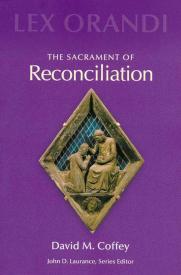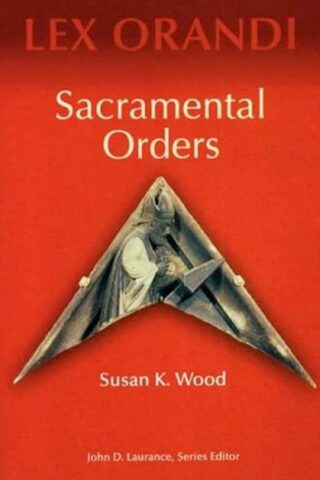John Laurance
Showing all 2 results
-
Sacrament Of Reconciliation
$29.95Add to cartAlthough it did not come from Christ in the form it has today, it is clear from Scripture that reconciliation was central to the ministry of Christ. In The Sacrament of Reconciliation David Coffey examines the theology of reconciliation and addresses the crisis that the sacrament faces in the present pastoral situation of the Church.
Father Coffey calls on Scripture and tradition, to the magisterium, and to theology in his analysis. However, he also moves beyond these to look at the practice of the Church and to the liturgy as it is regulated, celebrated, and experienced. In doing so, he presents a theology of the sacrament of reconciliation that is truly based on, and inspired by, the liturgy. This theology is molded by two contextual factors: the crisis that the sacrament is currently undergoing in the developed nations of the West and the restrictions imposed by Rome on the “third rite,” the most communal of the three forms of the sacrament.
Since the sacrament of reconciliation exists for the forgiveness of postbaptismal sin, chapter one is devoted to a theology of sin. Here, Father Coffey identifies what the main theological cause is at the heart of the present crisis, namely, a serious and widespread confusion about the nature of sin. Chapter two focuses on the Church’s ministry of reconciliation. This chapter provides both essential knowledge and a response to the widely held view that one does not need to turn to the Church in order to obtain forgiveness from God for sin. Chapter three examines the four parts of the sacrament: contrition, confession, absolution, and the prescribed work of penance. The investigation in this chapter suggests theological limits to possible future reforms of the sacrament. In chapter four Father Coffey offers a detailed examination of the three sacramental rites and the nonsacramental service set down by The Rite of Penance. Finally, in chapter five, Father Coffey offers some predictions about the future of the sacrament, based on his study.
-
Sacramental Orders
$29.95Add to cartOrdained ministry cannot be understood by itself or only in its relationship with Christ. It must find its identity in relationship to the Church, for it exists to serve and build up the Church. In Sacramental Orders Susan Wood places the theology of ordained ministry within its ecclesial foundations, identifying four concepts that shed light on different aspects of ordained ministry and its relationship to the Church: a monarchical and hierarchical concept; a eucharistic, collegial model of ministry representing the communion of particular Churches; the priest, prophet, and king, which structures the concept of the Church as the people of God; and a theology of the Church as a sacrament of Christ and ordained ministry as a sacrament of the Church.
Sacramental Orders is a liturgical and theological study of ordained ministry grounded in the liturgy of the 1990 typical edition of the rites. It addresses the three Orders within the one Sacrament of Order: bishop, presbyter, and deacon. By including each order with this study, the interrelationship between the three becomes more apparent, and the theology of one is allowed to inform the theology of the others. Wood points out that one of the challenges in theologies of ordained ministry today is to distinguish a bishop from a presbyter when both are ordinations to the priesthood and presbyters are assuming a greater ministry of oversight as they pastor more than one parish, and to distinguish deacons from presbyters at a time in church history when deacons are assuming more presbyteral functions.Sacramental Orders also focuses on the mutual reciprocity in the relationship between liturgical rite and the theology of the sacrament as explained in ecclesial documents. The ordination rites reflect the theology expressed by Vatican II and yet also present a theology of the sacrament embedded in the liturgical texts and actions.


